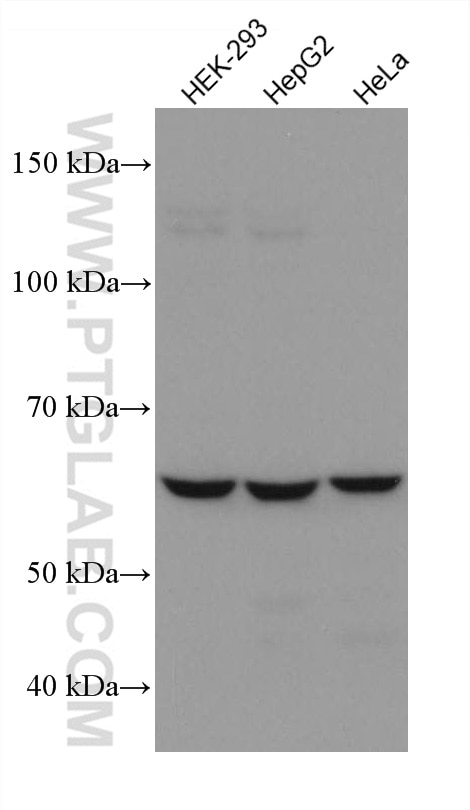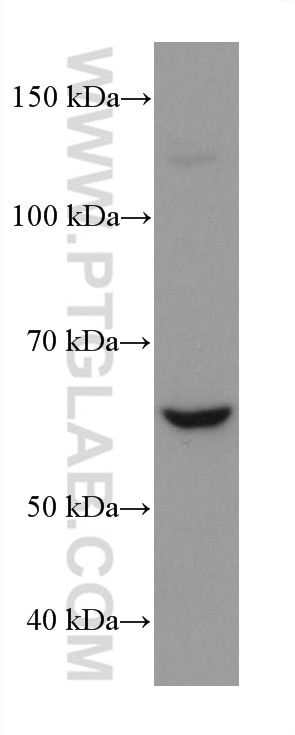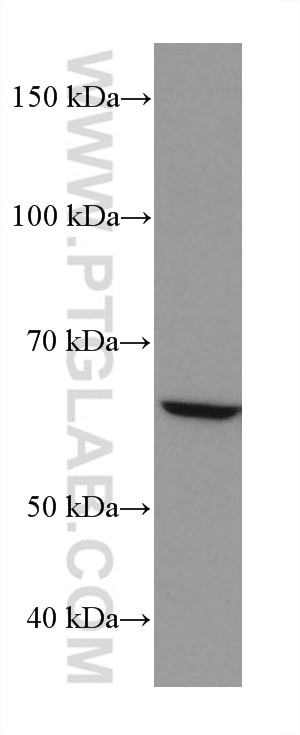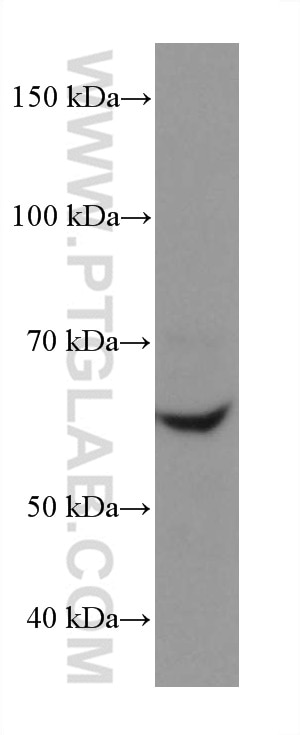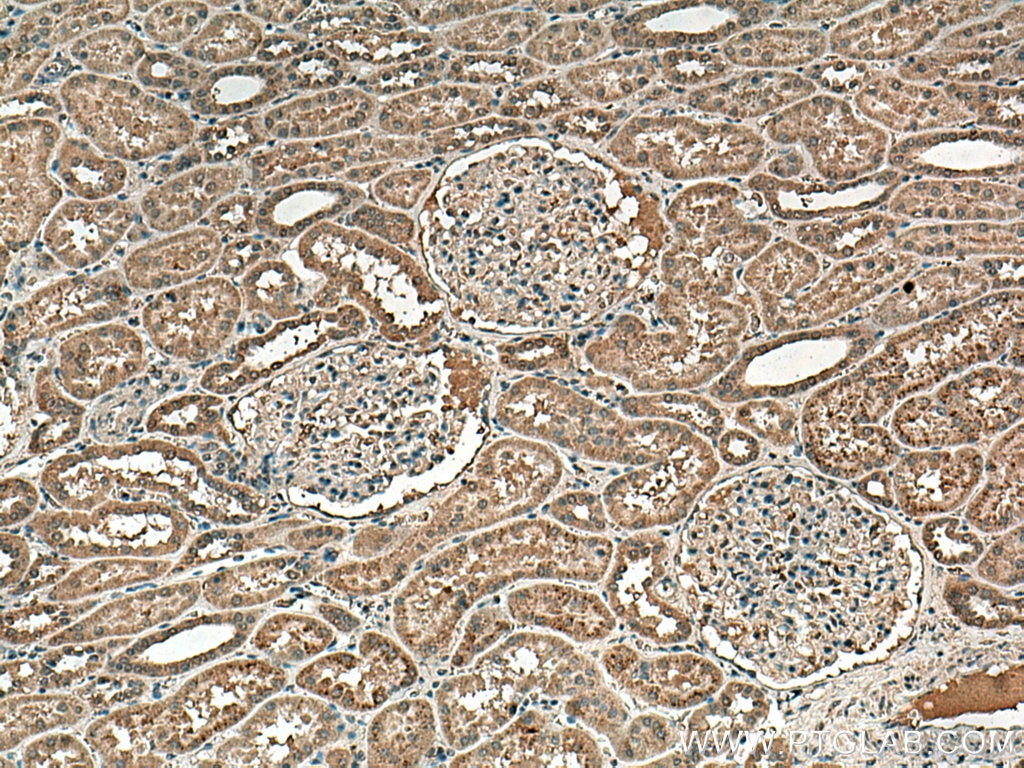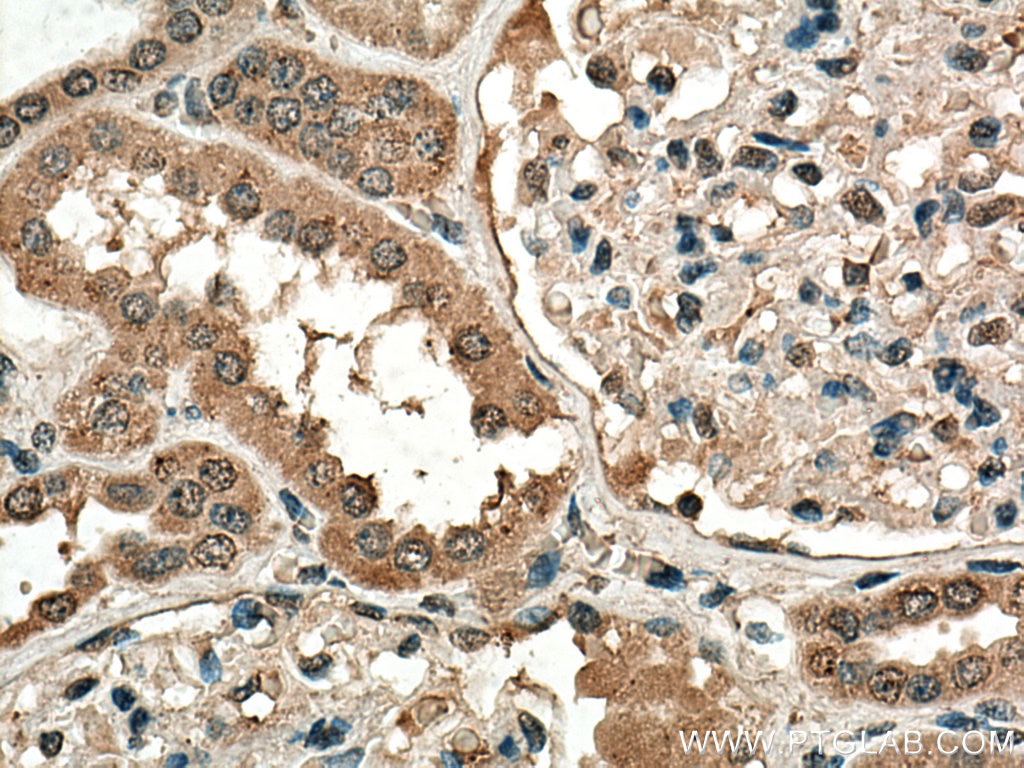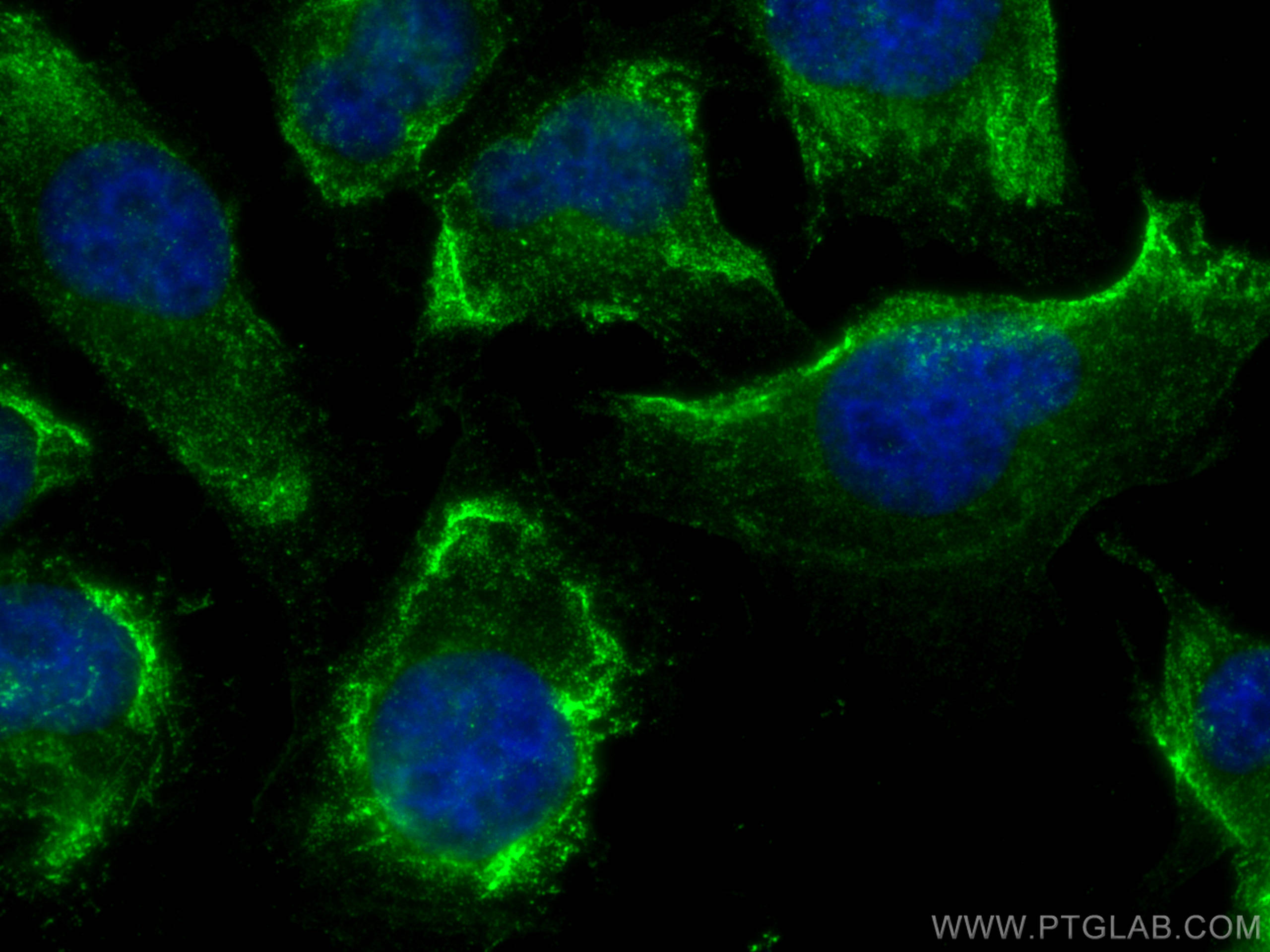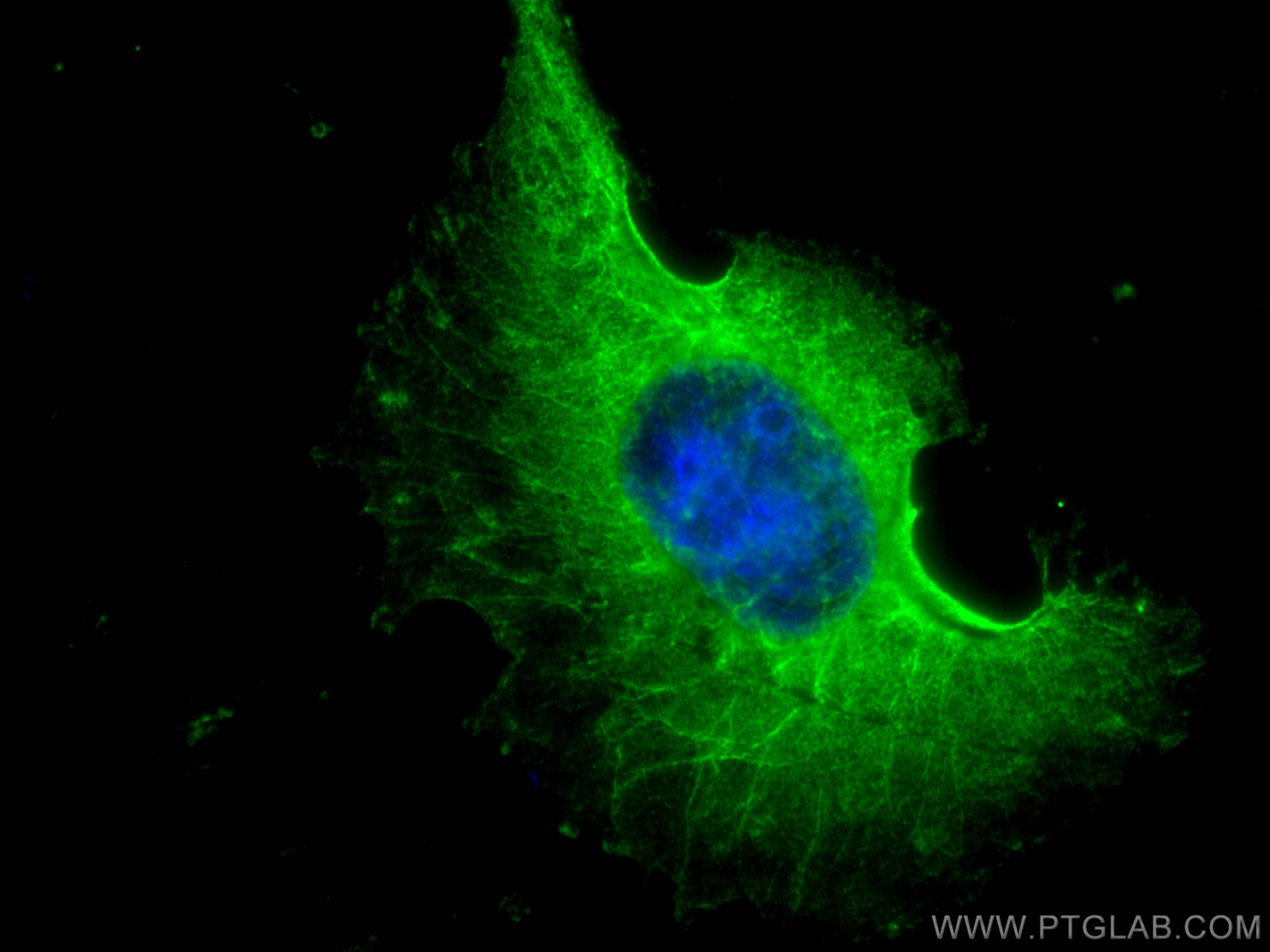Anticorps Monoclonal anti-NOX4
NOX4 Monoclonal Antibody for WB, IHC, IF/ICC, Indirect ELISA
Hôte / Isotype
Mouse / IgG1
Réactivité testée
Humain, rat
Applications
WB, IHC, IF/ICC, Indirect ELISA
Conjugaison
Non conjugué
CloneNo.
4E5F1
N° de cat : 67681-1-PBS
Synonymes
Galerie de données de validation
Informations sur le produit
67681-1-PBS cible NOX4 dans les applications de WB, IHC, IF/ICC, Indirect ELISA et montre une réactivité avec des échantillons Humain, rat
| Réactivité | Humain, rat |
| Hôte / Isotype | Mouse / IgG1 |
| Clonalité | Monoclonal |
| Type | Anticorps |
| Immunogène | NOX4 Protéine recombinante Ag6176 |
| Nom complet | NADPH oxidase 4 |
| Masse moléculaire calculée | 67 kDa |
| Poids moléculaire observé | 58-67 kDa |
| Numéro d’acquisition GenBank | BC040105 |
| Symbole du gène | NOX4 |
| Identification du gène (NCBI) | 50507 |
| Conjugaison | Non conjugué |
| Forme | Liquide |
| Méthode de purification | Purification par protéine A |
| Tampon de stockage | PBS only |
| Conditions de stockage | Store at -80°C. 20ul contiennent 0,1% de BSA. |
Informations générales
NOX4 (NADPH oxidase 4) is a phagocyte-type oxidase, similar to that responsible for the production of large amounts of reactive oxygen species (ROS) in neutrophil granulocytes with resultant antimicrobial activity and it has been postulated to function in the kidney as an oxygen sensor that regulates the synthesis of erythropoietin in the renal cortex. Studies have reported molecular masses of Nox4 protein by western blot analysis ranging from 55 to 80 kDa. The truncated NOX4 splice variant D (28 kDa) lacks the majority of the transmembrane domain and has been shown to produce higher levels of ROS and DNA damage compared to its prototype. NOX4D has previously been shown to localise to the nucleus and nucleolus in various cell types and is implicated in the generation of reactive oxygen species (ROS) and DNA damage (PMID: 11728818, PMID: 29285262, PMID: 14670934). Nox4 in cardiac myocytes is primarily expressed in mitochondria, and upregulation of Nox4 induced by hypertrophic stimuli elicits mitochondrial dysfunction and cardiac failure. In breast or ovarian tumor cells, mitochondrial Nox4 contributes to oncogenesis. In vascular endothelial cells, however, Nox4 is expressed in the endoplasmic reticulum (ER) and plays a specific role in redox-mediated ER signaling (PMID: 24259511).
